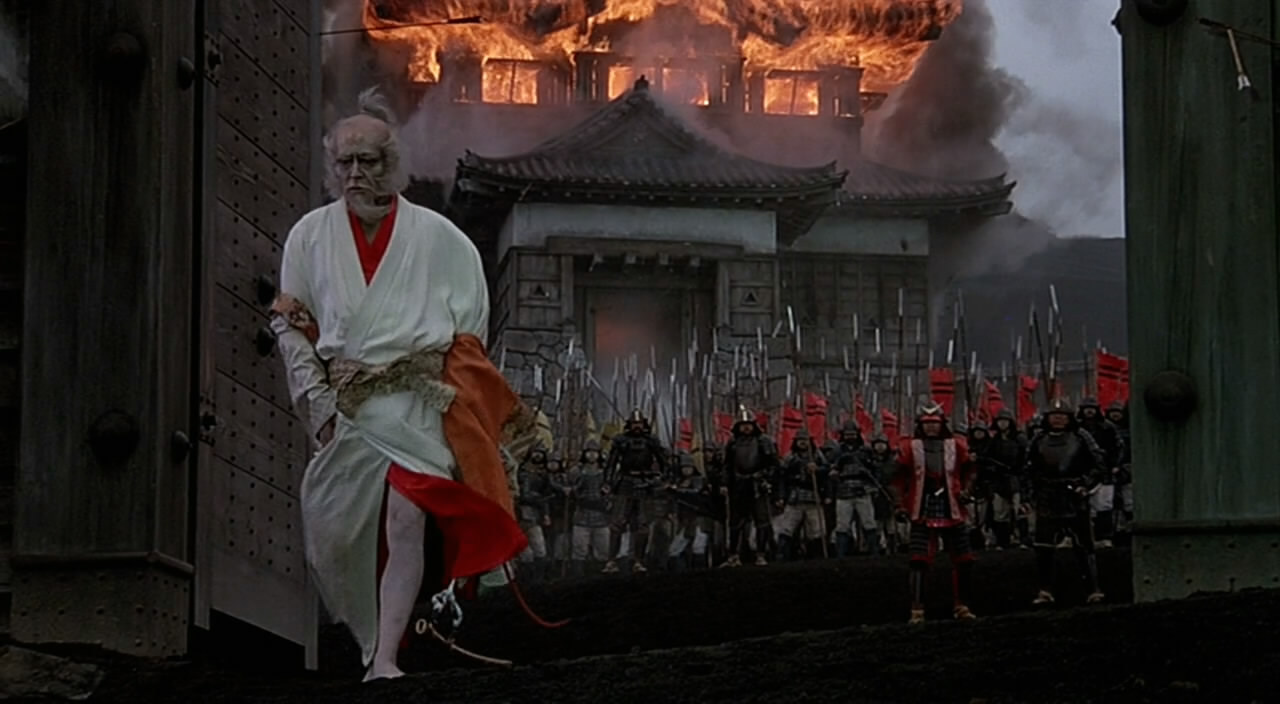Recently my life has been full of
Shakespeare. I have started a Shakespeare reading group with some of my New
Jersey friends, I saw an excellent production of Measure for Measure at the
Globe Theatre in London this week, and I am in the middle of reading King John
for my own pleasure. I have ambitions to read through the entire canon before
I turn thirty, and at 25 am happy to say that I have read about twenty so far.
Part of the fun of reading Shakespeare is then watching film adaptations of his
work – from Orson Welles and Laurence Olivier to Ingmar Bergman and Akira
Kurosawa, many auteurs have used the bard as inspiration and directed their own
versions of his plays. When I was last back in America, I made it a point to
watch three of the most epic Shakespeare adaptations on my parents' big screen
television, and feel comfortable in saying that each is in the canon of not
just the greatest Shakespearean films, but some of the greatest films of all
time. These were the 1996 Hamlet, Chimes at Midnight, and Ran.

I was already a big fan of Laurence Olivier’s 1948 Hamlet adaptation, a black and
white picture that puts the Dane into a backdrop reminiscent of German
expressionism. I was pleasantly surprised when this version was even better.
Branagh’s world, visually, could not be more different – set in the 19th
century, filmed at Blenheim Palace in beautiful 70 mm film, this is a sharply
defined world of the not too distant past – much like the past I imagine
Shakespeare was trying to evoke to his audience. Unlike Olivier’s abridged
film, every line of the original text is used, giving the work a run time of
over four hours. Perfectly paced, it is very easy to sit through in one viewing without checking the time. This was Branagh’s
third, and biggest, Shakespeare film, and in order to get funding the studio demanded an all star cast, which includes Kate Winslet, Derek Jacobi, Robin
Williams, Charleton Heston, Jack Lemmon, Billy Crystal, Timothy Spall, Brian
Blessed, John Gielgud, Judy Dench, Gerard Depardieu, and Richard Attenborough.
From the biggest role to the smallest, they all deliver.

Unlike
Hamlet, which is a direct adaptation of the play it’s based on, Chimes at Midnight (1965) takes bits
from Richard II, Henry IV Part I and II,
Henry V, and The Merry Wives of
Windsor to fashion a story around Falstaff, recasting his story as a
tragedy in friendship. The drunken buffoonish Falstaff is betrayed by Hal, whom he could never really connect with, as Hal was heir to the
English throne. In the first act, in what is usually delivered as a monologue,
Hal playfully tells Falstaff that he is merely acting base so that when he
becomes King h is ascendency “shall show more goodly”. When he does become Henry
V, he affects to not recognise Falstaff, and banishes him from his royal sight.
Orson Welles directed and starred as Falstaff in this film, one that he
financed by pretending that he was filming an adaptation of Treasure Island. A lot of the production
has a ramshackle feel to it – stand-ins often replaced actors and the sound
quality is often muddy, but the film is strong enough to outweigh these
weaknesses. Along with Citizen Kane,
this is Welles’ greatest work, but sadly it remains mostly unknown. The
entirety is available on YouTube and I highly recommend it to anyone who has
read these plays.

Ran, unlike the other two films, doesn’t
use Shakespeare’s language; rather it is a Japanese language film directed by
Akira Kurosawa and based on Shakespeare’s King
Lear. Many details are changed – Lear (or Hidetora, as he is renamed) has
sons, not daughters, and, unlike in Shakespeare’s play, we see the family's history in Ran and better understand their
actions. The two sycophant sons betray their father not out of infidelity to a
filial duty, but rather because they recognise their father as a
bloodlustful warlord who committed atrocities to acquire his kingdom. These
brothers both fall under the spell of the beautiful Lady Kaede, whose family
was brutally murdered by Hidetora and wants nothing but vengeance. Like Welles,
Kurosawa had much difficulty in getting his later work produced, and spent ten
years working on this film, which was eventually financed by foreign
contributors as Kurosawa had fallen so out of favour in Japan. At the
age of 75, Kurosawa personally identified with Lear, once stating “Hidetora is
me.” Unlike Hidetora, however, Kurosawa walked away from Ran triumphant, as his last epic film became his biggest success in
twenty years.
There
are several other great film adaptations of Shakespeare’s work out there – two
nineties versions of Richard III
starring Al Pacino and Ian McKellen, Anthony Hopkins in Titus, Ralph Fiennes’ Coriolanus,
Shakespeare in Love, Orson Welles’ Macbeth and Othello, and both Olivier and Branagh’s versions of Henry V are amongst my favourites. Almost
four hundred years after his death, Shakespeare has never been more popular,
with his work studied and performed on all continents. These are just some of
my favourite film adaptations, and I look forward to discovering more.
Comments
Post a Comment